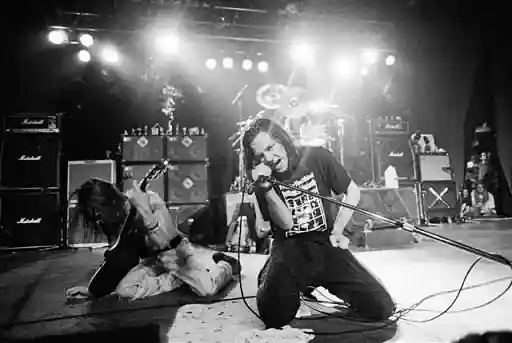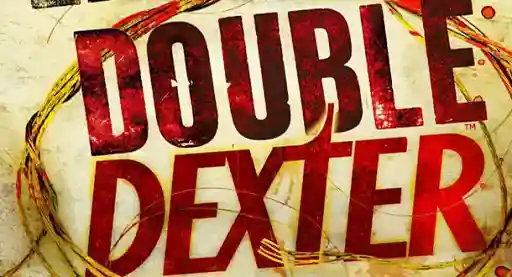Bookshots: Pumping new life into the corpse of the book review
Title:
Hustle
Who Wrote It?
Tom Pitts, a street-taught author of numerous short stories and the novella Piggyback. Hustle is his debut novel. More info at his website.
Plot in a Box:
Donny and Big Rich, two San Francisco prostitutes, hatch a scheme to blackmail regular customer/big-shot attorney Gabriel Thaxton. Their plans get muddled, however, by Dustin, a speed-sucking felon with his own designs against Gabriel, prompting biker bad-ass Bear Mayfield to step in and, hopefully, save the day.
Invent a new title for this book:
Killers, Thieves and Lawyers (borrowed from the Tom Waits song "God's Away on Business")
Read this if you like:
The unconventional crime-noir of Jim Thompson, the unflinching sexual depictions found in Chuck Palahniuk's work, and the sympathetic junkies of Irvine Welsh's Trainspotting.
Meet the book's lead:
Technically speaking, Donny, the redemption-seeking street hustler/heroin addict, is our protagonist, but I found Bear the biker a far more compelling character. He's basically a bearded, overweight Philip Marlowe without a license, slugging down whiskey and beer in-between puffs of Camel Lights and bouts of no-nonsense ass-kicking. If you ever get into the kind of trouble Donny, Big Rich, and Gabriel get themselves into, this is one dude you want in your corner.
Said lead would be portrayed in a movie by:
Mark Addy, best known as King Robert Baratheon in Game of Thrones. He would perfectly capture the character's blend of toughness and charm.
Setting: Would you want to live there?
The cold street corners and dingy flop houses frequented by Donny and Big Rich: nope. San Francisco in general...Well, it's near the ocean, and it's pretty...but it gets too chilly in the winter there, and the rent is too damn high. I'll pass.
What was your favorite sentence?
There was so much blood up there it looked like a Jackson Pollock painting.
The Verdict
There are some pretty grandiose claims in Hustle's introduction, written by Les Edgerton ("author of The Rapist, Just Like That, and The Bitch," we're told), the biggest being that this book will give birth to a whole new offshoot of the noir genre—"Hustle Noir," he calls it. Edgerton also states that some critics will find the book "abhorrent" for its unapologetic depictions of drug addiction and prostitution, and its general lack of "PC" values.
So when I began reading Pitts's novel, I had a strong sense of what-have-I-gotten-myself-into? I mean, if a guy who wrote a book called The Rapist was this enthused about Hustle, it must be one morally-depleted tale, right? Well, as it turns out, Edgerton's introduction is more a product of the hype machine than a warning to sensitive readers. Save for one particularly nasty scene close to the end, I didn't find anything overtly unsettling in the pages of this book—nothing so stomach-churning as the climax of Palahniuk's story "Guts," or as insidiously unnerving as the machinations of Lou Ford in Thompson's The Killer Inside Me, for instance. Perhaps my brain is just warped, or perhaps the old saying rings true here: don't believe the hype.
Now, this isn't to say Hustle is a bad book. Far from it. Pitts knows the conventions set forth by the twice-aforementioned Jim Thompson, Raymond Chandler, and James M. Cain, and uses them in a way wholly his own. His characters (with a few minor exceptions) aren't necessarily "good people," and yet we root for them all the same, showing Pitts's knack for writing compelling antiheroes. The overarching mystery offers as many twists and blind turns as a California mountain highway without ever resorting to cheap red herrings or meaningless MacGuffins. The requisite hardboiled language is here, but with an understated, plainspoken flair that reminds me more of Stephen King than any of the direct influences already discussed. And finally, just as every good author should do, Pitts answers all questions by narrative's end, but asks a few more in the last few pages, leaving the reader to ponder on the (surviving) characters' paths beyond the confines of Hustle.
This book may never forge a brand new category, as Edgerton suggests, but it does effectively (and, therefore, lovingly) carry the torch of noir onward and upward, and Pitts will surely be counted among the best 21st century writers of the genre. Like printed books, vinyl records, and a functioning democratic government, we need dedicated people to keep noir going, and Pitts—so far—is doing a damn fine job.

About the author
Christopher Shultz writes plays and fiction. His works have appeared at The Inkwell Theatre's Playwrights' Night, and in Pseudopod, Unnerving Magazine, Apex Magazine, freeze frame flash fiction and Grievous Angel, among other places. He has also contributed columns on books and film at LitReactor, The Cinematropolis, and Tor.com. Christopher currently lives in Oklahoma City. More info at christophershultz.com







